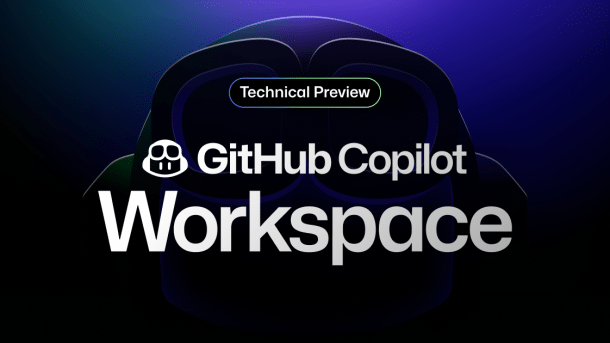GitHub releases AI-powered development environment Copilot Workspaces
Plan, test, execute: With Copilot Workspaces, GitHub also wants to support developers where things often get stuck the most: at the beginning.

Copilot Workspaces are designed to give Copilot its own home and support developers when starting a project.
(Image: GitHub)
GitHub, the software development platform and subsidiary of Microsoft, is releasing Copilot Workspaces as a technical preview. GitHub's programming assistant Copilot was launched in 2022 and has since supported developers in the editor as an AI colleague. Copilot Workspaces are now intended to give Copilot its own home and support developers, especially when starting a project or implementing a feature for the first time.
Videos by heise
Copilot becomes an agent
The functions go far beyond autocomplete, but should also enable developers to start from scratch, using only a GitHub repository or issue as a starting point. For example, a user could suggest a new feature via the GitHub Issues. In the Copilot Workspace, Copilot then first creates a specification from this and compares the current state with the target state. Copilot then creates a step-by-step plan with changes that need to be made to fulfill the requirement - and delivers the code at the same time. The individual steps of the plan and the generated code can be adapted by the developer and tested directly in GitHub Codespaces, containerized development environments in the cloud, on which Copilot Workspace is based. This also works with mobile devices via the GitHub apps.
Empfohlener redaktioneller Inhalt
Mit Ihrer Zustimmung wird hier ein externes Video (TargetVideo GmbH) geladen.
Ich bin damit einverstanden, dass mir externe Inhalte angezeigt werden. Damit können personenbezogene Daten an Drittplattformen (TargetVideo GmbH) übermittelt werden. Mehr dazu in unserer Datenschutzerklärung.
From the idea to the feature
GitHub first showcased Copilot Workspaces at its Universe conference at the end of last year. Jonathan Carter, head of GitHub Next, explained in an interview with c't that Copilot Workspaces is intended to help developers bridge the gap between idea and feature. GitHub Next is the team within GitHub that is dedicated to research and development and has developed Copilot Workspaces.
(Image: GitHub)
Thomas Dohmke, CEO of GitHub, emphasizes in the announcement of Copilot Workspaces that the interaction between developers and Copilot in the Copilot Workspace takes place in natural language. This is intended to lower barriers and open the door to software development for more people in the future. Experienced developers should also benefit from Copilot Workspaces, as they will have less boilerplate code to deal with and can concentrate on decisions relating to the logic or architecture of an application.
(ndi)